(46062 products available)




































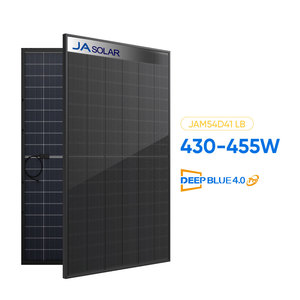
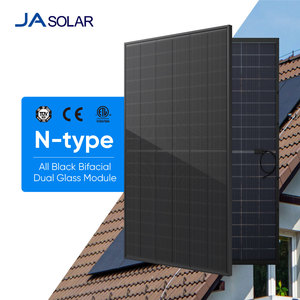
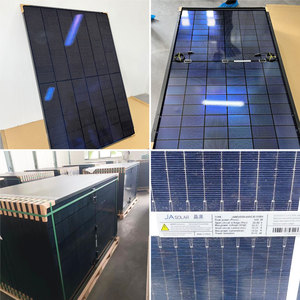

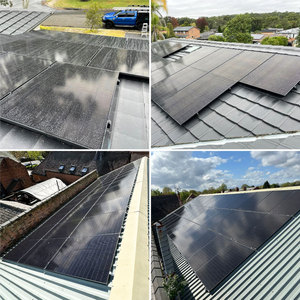
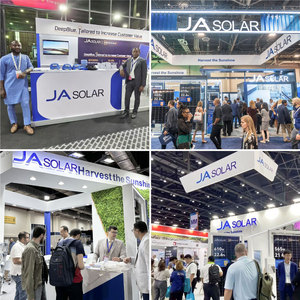




































































































































































Pv glass panels are an integral part of any solar energy system. They are designed to convert sunlight into electricity, providing a renewable energy source for residential, commercial, and industrial applications. There are several types of pv glass panels, including the following:
Monocrystalline panels
These panels are made of silicon with a single, continuous crystal structure. They are known for their high efficiency and sleek black appearance. The panels' efficiency can reach 15% and 20%, making them a popular choice for homeowners with limited roof space. They absorb sunlight's energy and convert it into electricity. These panels are more space-efficient and require less silicon to manufacture. However, they are more expensive due to the complex manufacturing process.
Polycrystalline panels
These panels are made of silicon crystals that are melted together and poured into a mold. They have a speckled blue appearance and are less efficient than monocrystalline panels. Their efficiency ranges between 13% and 16%. They offer a lower-cost alternative to monocrystalline panels and are more environmentally friendly, using less silicon. However, they require more space to produce the same amount of electricity as monocrystalline panels.
Bifacial panels
These are advanced solar panels with front and back sides that can capture sunlight from both direct and reflected sources. They are designed to increase energy generation by utilizing sunlight that hits the panel from various angles. Their efficiency varies widely, reaching up to 27% with the right conditions. They can capture sunlight from both sides, increasing total energy production, especially in reflective environments like snow or sand. They are more efficient in specific conditions and have a unique design that promotes higher energy output.
Thin-film panels
These are solar panels made by depositing a thin layer of photovoltaic material on a substrate. They are lightweight and flexible, offering different applications. Their efficiency ranges between 10% and 12%. They are less efficient but can be made flexible and lightweight, suitable for specific applications where traditional panels are impractical. They perform better in low-light conditions and high temperatures and can be produced cheaply and on large areas. However, they require more space to produce the same amount of electricity as crystalline silicon panels and have a shorter lifespan.
Aesthetic panels
Aesthetic solar panels are designed to blend into a home's architecture and design more seamlessly than traditional solar panels. They prioritize visual appeal while still providing solar energy. Their efficiency depends on the specific type, with most falling between 13% and 20%. They come in various styles, such as solar shingles, which look like traditional roofing materials, or transparent panels that can serve as windows. They are designed to complement rather than detract from a home's appearance.
Power Generation
The primary function of a PV glass panel is to convert sunlight into electricity. This process is facilitated by photovoltaic cells, which are embedded between the glass layers. These cells absorb photons from the sunlight and generate direct current (DC) electricity. An inverter then converts this electricity into usable alternating current (AC) for residential or commercial consumption.
Durability and Protection
PV glass panels are designed to be durable and robust. They are made with toughened or tempered glass, which can withstand harsh weather conditions, high winds, and impacts. This durability ensures the longevity of the solar panels, with most panels having a lifespan of 25 years or more.
Energy Efficiency
PV glass panels are manufactured to be highly energy-efficient. This efficiency is often measured in terms of conversion efficiency, which indicates the percentage of sunlight converted into electricity. Some modern PV panels have conversion efficiencies of up to 22% or more.
Environmental Benefits
PV glass panels contribute significantly to environmental sustainability. By generating electricity from sunlight, they help reduce reliance on fossil fuels and lower greenhouse gas emissions. This reduction in emissions is crucial in combating climate change and promoting a healthier planet.
Transparency and Aesthetics
PV glass panels are semi-transparent, allowing natural light to enter while generating electricity. This feature is particularly beneficial in urban areas where artificial lighting is commonly used during the day. Transparent PV panels can be used on building façades, canopies, and awnings, contributing to the building's energy production without compromising natural light.
UV Protection
Some PV glass panels come with UV-filtering capabilities. These panels can block harmful ultraviolet rays while allowing visible light to pass through. UV-filtering PV panels are ideal for applications where UV protection is essential, such as in museums, art galleries, and residential homes with valuable furnishings that can be damaged by UV radiation.
Self-Cleaning Coating
Maintaining the efficiency of PV glass panels requires them to be clean and free from debris. Some modern PV panels come with self-cleaning coatings. This feature uses photocatalytic technology, which is activated by sunlight. The coating converts organic dirt or debris into a water-soluble compound that can be washed away by rainwater.
Shatter Resistance
Safety is a critical concern in solar panel applications, especially in areas prone to high winds, hail, or falling debris. Some PV glass panels are designed to be shatter-resistant. These panels undergo specialized manufacturing processes that increase their strength and resistance to shattering upon impact.
Pv glass panels are used in various applications, particularly in construction, renewable energy, and technology. Here are some common usage scenarios:
Building Facades and Roofs
PV glass panels can be integrated into building facades and roofs. They generate electricity while maintaining transparency or translucency. This allows natural light to enter the building. The energy produced can be used to power building operations or fed into the grid. Additionally, these panels are utilized in building-integrated photovoltaics (BIPV) systems. These systems seamlessly combine solar energy generation with architectural elements.
Skylights and Atriums
PV glass panels are used in skylights and atriums. They create open and well-lit spaces in commercial and residential buildings. These panels harness solar energy. They reduce the need for artificial lighting. They also increase the aesthetic appeal of such structures.
Solar Canopies and Carports
PV glass panels can be installed on solar canopies and carports. These are parking areas that generate renewable energy. The panels protect vehicles from the weather. They also provide charging stations for electric vehicles. This is done without requiring additional land use.
Balustrades and Railings
These panels are also used as balustrades and railings in outdoor areas. They offer a safe barrier while allowing light transmission and views. They enhance the safety and aesthetics of any structure. More importantly, they produce clean energy.
Noise Barriers
PV glass panels can function as noise barriers along highways or railway lines. They mitigate sound pollution in nearby communities. They also generate solar power in the process.
Smart Windows
Some advanced PV glass panels are smart windows. They can adjust their tinting or transparency based on solar heat gain or glare. This improves energy efficiency. It also enhances occupant comfort.
Portable Solar Devices
PV glass panels are used in small-scale portable solar devices. For instance, solar chargers for electronic gadgets, illuminated signs, and small water fountains. These panels offer a convenient way to harness solar energy in remote areas or on the go.
When selecting the perfect glass panel for a specific project, a few factors need to be considered. These considerations will help purchase the right kind of glass panel that will suit the project needs.
Cost
One of the first things to consider when buying a PV glass panel is the cost. How much are the PV glass panels being sold at, and are they within the budget? It's important to note that some PV panels vary in price depending on their efficiency and aesthetics. For instance, PV panels that are more efficient and attractive tend to be more expensive than those that are less efficient.
Efficiency
Another important factor to consider is the efficiency of the glass panels. When it comes to solar panels, one indisputable fact is that more is less. This means that buyers should look for a solar panel with a higher efficiency rating of between 16 and 22%. This information is usually provided by the manufacturer in the datasheet.
Wattage output
The wattage output of the solar panels is also an important consideration. Buy panels with a higher wattage output since they will generate more energy.
Space
The available space will also determine the type of solar panels to buy. If the available space is limited, then panels with high efficiency and conversion rates should be the priority. On the other hand, if there is ample space, then standard panels can suffice.
Durability and warranty
It's also important to check the durability of the glass panel and the kind of warranty provided by the manufacturer. This will give buyers a peace of mind knowing that in the event there is a problem with the panel, they will be covered. A good warranty to look for is one that lasts between 25 years and the panel's output.
Aesthetics
Although this might not be an important factor in some cases, it is still something to think about. If the solar panels are to be installed in a visible area, it is only fair to choose panels that are visually pleasing. In this case, panels that are all black or have a glass front might be the best option.
Q1: What are the disadvantages of PV glass?
A1: Some of the disadvantages of PV glass include their high initial costs, which are greater than that of traditional glass panels. PV glass also has a lower energy conversion efficiency compared to conventional solar panels. In addition, the energy production of PV glass panels depends on sunlight, which is not available at night and is reduced on cloudy days.
Q2: What is a glass panel with no frame called?
A2: A glass panel without a frame is called frameless glass. It is made using toughened or tempered safety glass. Its applications include glass fences, glass doors, glass balustrades, and windows.
Q3: How long do glass panels last?
A3: The longevity of glass panels depends on various factors. Solar panels with PV glass can last up to 25 years or more. Their lifespan is often influenced by the quality of materials used, installation, maintenance, and environmental conditions. However, their energy efficiency may gradually decrease over time.
Q4: What is a laminated glass panel?
A4: A laminated glass panel consists of two or more layers of glass bonded together with an interlayer, such as PVB (polyvinyl butyral) or EVA (ethylene vinyl acetate). It is designed to enhance safety, security, and acoustic performance. Laminated panels reduce UV transmission, thereby preventing fading of furniture and artwork.
Q5: What is a double glass panel called?
A5: A double glass panel is called insulated glass or double glazing. It consists of two panes of glass separated by a spacer bar and sealed to form a unit. IGU reduces heat transfer, minimizes condensation between the panes, and provides enhanced sound insulation.